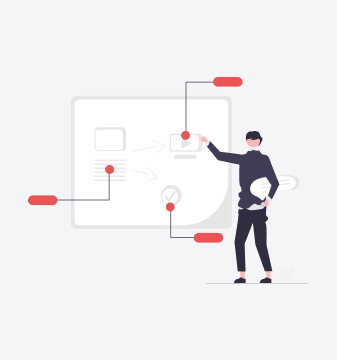Data science is one of the fastest-growing fields today. As organizations realize the value of data to drive decisions, products, and processes, demand for data science skills has skyrocketed. The data science programs can help you break into this exciting field or take your career to the next level. This comprehensive guide covers everything you need to launch a successful data science career, from Python basics to predictive modeling.
Why Enroll in a Data Science Certificate Program?
The data science programs provide intensive training in data analytics, statistics, Python programming, machine learning, and more. Here are some of the top reasons to complete a data science boot camp or certification:
- Learn In-Demand Skills: Data science combines statistics, coding, analytics, and business acumen. A boot camp efficiently teaches this unique blend of high-value abilities.
- Hands-On Focus: Certificate programs emphasize real-world skills and projects for hands-on learning.
- Networking Opportunities: You’ll study alongside peers and interact with industry experts and partners.
- Career Support: Many boot camps provide career coaching and connections to help students land data science jobs.
Core Curriculum: What You’ll Learn
While each data science certification is unique, most touch on the same building blocks:
Python Programming
Python is the most popular programming language for data science. A data science certificate will teach core Python skills like:
- Variables and data structures
- Control flows and loops
- Functions
- Object-oriented programming
A strong grasp of Python empowers you to wrangle, process, visualize, and model large datasets.
Statistics & Probability
Stats literacy is mandatory for impactful data analysis. Key statistics topics include:
- Descriptive/inferential statistics
- Hypothesis testing
- Regression analysis
- Bayesian statistics
- Statistical experiment design
- Time series analysis
- Forecasting models
Statistics allow you to describe relationships in data, model outcomes, minimize errors, and maximize the insights from data.
Data Analysis & Visualization

Honing data intuition takes extensive hands-on practice. Certificate programs provide real-world datasets and tools to refine skills in:
- Data wrangling and cleaning with Python
- Exploratory data analysis (EDA)
- Presenting data insights to non-technical audiences
- A/B testing for data products
These techniques crystallize findings from raw datasets into impactful insights.
Machine & Deep Learning
Machine learning brings intelligence to applications. Certificate coursework covers:
- ML algorithms like regression, classification, clustering, reinforcement learning
- Building and evaluating ML models
- Improving models via hyperparameters, regularization, ensembles
- Introduction to neural networks and deep learning
- Implementing ML with Python libraries
- AI ethics
Machine learning expertise lets you create intelligent systems for prediction, personalization, classification, and more.
Program Types & Time Commitment
Students can choose between full-time intensive boot camps or part-time, flexible certificates to fit their schedules and learning preferences:
Full-Time Immersive
These intensive certificates mimic technology boot camps in their structure. Full-time students complete the program in 6-12 consecutive weeks with 40+ hours per week of coursework.
Part-Time Flexible
Part-time certificates offer evenings-and-weekends course schedules spanning 6 months to 2 years. Ideal for working professionals upskilling alongside current roles, flexible programs trade longer timelines for less weekly time commitment.
Conclusion
Data science programs offer intensive, hands-on training in must-have abilities like Python, statistics, visualization, and machine learning. Bootcamps and certification programs provide efficient upskilling, whether through full-time immersive or part-time flexible options. Most importantly, data science certificates deliver immense career benefits, with graduates landing jobs, earning raises, and launching new data-driven careers.
FAQs
1. How much coding do I need to know beforehand?
Introductory Python or other programming coursework is helpful, but most programs teach coding from scratch. Absolute beginners will benefit from previewing some programming tutorials online beforehand.
2. Can the coursework transfer to master’s credit?
Potentially, over 75 universities have articulation agreements recognizing certain boot camp certificates for master’s degree transfer credits. Check with your target grad programs.
3. When do classes meet if working full time?
Part-time certificates offer evenings plus Saturday class schedules to accommodate working professionals. Expect 10-15 hours of weekly commitment.
4. What math background is required?
While programs review prerequisite math/stats, they often provide resources for brushing up skills beforehand. College-level calculus and probability are ideal but only sometimes mandatory.
5. Do I need to submit a coding sample with the application?
Rarely, although some boot camps invite code submissions to gauge experience level to tailor instruction plans, applying students needing more coding expertise receive ample programming exposure within the curriculum.




